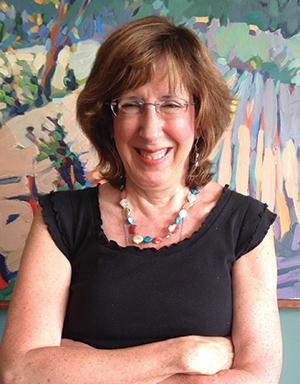
Roanne Weisman
WHEN SOMEONE YOU LOVE is dealing with a cancer diagnosis, it’s natural, as a caregiver, to want to keep difficult-to-express emotions, including fear, sadness, worry and anger, safely hidden from view.
By opening up about these feelings and welcoming the patient to do the same, however, you can deepen your bond. Talking about your emotions may provide a bridge that can put complicated feelings in better perspective and enrich your relationship.
Set Aside Time
In the midst of medical appointments and family obligations, find a quiet moment—perhaps after a meal or while helping your loved one get ready for bed—to ask if the patient is open to talking.
You may start by saying, “I just read an article about sharing your feelings while undergoing treatment. Would you be willing to talk more about what we are going through?” Oftentimes, caregivers and patients just need an opening that allows them to say what’s on their minds.
If you both agree, you can set aside some quiet time to discuss feelings, including talking about what you are thankful for and areas that have been weighing heavily on you.
Keep an Open Mind
When venturing into difficult topics, avoid accusatory language, such as using the word “you.” Instead, use “I,” and focus on your own feelings. For example, you could say, “I feel tired and frustrated,” rather than, “You don’t appreciate all that I do.” This avoids both blame and defensiveness.
If you see a way that your partner can help with an issue, be sure to say it. You may start with, “It would be really nice for me if you would say ‘please’ and ‘thank you.’ ” Your partner may express needs and wants in similar fashion.
Listen
Remember, it’s OK if you can’t “solve the issue.” Instead, the simple act of listening can be a powerful way to show support when people are discussing emotions, such as fears, lost dreams and perceptions. Steer clear of interrupting or judging each other. Having the opportunity to be heard is just as important as stating both of your views.
Rekindle Old Connections
Share your hopes outside of cancer. You may find strength in describing what you both look forward to over the next few days, months or years. If your loved one has advanced disease, do the things you enjoy in the moment, connecting with old rituals, such as date nights or movie nights. Old routines offer another way to reaffirm the bond that brought you together in the first place.
Get Help
If you find yourself in a situation where you just can’t seem to talk it out, a licensed social worker or mental health professional, or even a religious leader may be able to help facilitate conversation. If your partner isn’t ready to hear what you have to say, be sure to find other outlets. Talk with family and friends or find a support group through your hospital. Several organizations, such as CancerCare and the Caregiver Action Network, can put you in touch with other caregivers to discuss your emotions.
Cancer Today magazine is free to cancer patients, survivors and caregivers who live in the U.S. Subscribe here to receive four issues per year.




